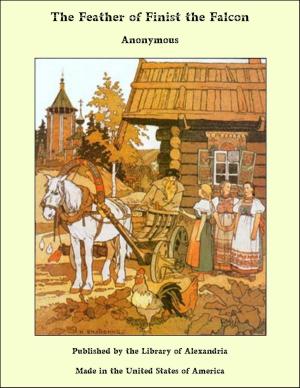Slave Narratives: A Folk History of Slavery in the United States From Interviews with Former Slaves Kansas Narratives
Nonfiction, Religion & Spirituality, New Age, History, Fiction & Literature| Author: | United States Work Projects Administration | ISBN: | 9781465612083 |
| Publisher: | Library of Alexandria | Publication: | March 8, 2015 |
| Imprint: | Language: | English |
| Author: | United States Work Projects Administration |
| ISBN: | 9781465612083 |
| Publisher: | Library of Alexandria |
| Publication: | March 8, 2015 |
| Imprint: | |
| Language: | English |
My name is Clayton Holbert, and I am an ex slave. I am eighty-six years old. I was born and raised in Linn County, Tennessee. My master's name was Pleasant Ples" Holbert. My master had a fairly large plantation; he had, I imagine, around one hundred slaves." "I was working the fields during the wind-up of the Civil War. They always had a man in the field to teach the small boys to work, and I was one of the boys. I was learning to plant corn, etc. My father, brother and uncle went to war on the Union side." "We raised corn, barley, and cotton, and produced all of our living on the plantation. There was no such thing as going to town to buy things. All of our clothing was homespun, our socks were knitted, and everything. We had our looms, and made our own suits, we also had reels, and we carved, spun, and knitted. We always wore yarn socks for winter, which we made. It didn't get cold, in the winter in Tennessee, just a little frost was all. We fixed all of our cotton and wool ourselves." "For our meat we used to kill fifteen, twenty, or fifty, and sometimes a hundred hogs. We usually had hickory. It was considered the best for smoking meat, when we butchered. Our meat we had then was the finest possible. It had a lot more flavor than that which you get now. If a person ran out of meat, he would go over to his neighbor's house, and borrow or buy meat, we didn't think about going to town. When we wanted fresh meat we or some of the neighbors would kill a hog or sheep, and would divide this, and then when we butchered we would give them part of ours. People were more friendly then then they are now. They have almost lost respect for each other. Now if you would give your neighbor something they would never think of paying it back. You could also borrow wheat or whatever you wanted, and you could pay it back whenever you thrashed."
My name is Clayton Holbert, and I am an ex slave. I am eighty-six years old. I was born and raised in Linn County, Tennessee. My master's name was Pleasant Ples" Holbert. My master had a fairly large plantation; he had, I imagine, around one hundred slaves." "I was working the fields during the wind-up of the Civil War. They always had a man in the field to teach the small boys to work, and I was one of the boys. I was learning to plant corn, etc. My father, brother and uncle went to war on the Union side." "We raised corn, barley, and cotton, and produced all of our living on the plantation. There was no such thing as going to town to buy things. All of our clothing was homespun, our socks were knitted, and everything. We had our looms, and made our own suits, we also had reels, and we carved, spun, and knitted. We always wore yarn socks for winter, which we made. It didn't get cold, in the winter in Tennessee, just a little frost was all. We fixed all of our cotton and wool ourselves." "For our meat we used to kill fifteen, twenty, or fifty, and sometimes a hundred hogs. We usually had hickory. It was considered the best for smoking meat, when we butchered. Our meat we had then was the finest possible. It had a lot more flavor than that which you get now. If a person ran out of meat, he would go over to his neighbor's house, and borrow or buy meat, we didn't think about going to town. When we wanted fresh meat we or some of the neighbors would kill a hog or sheep, and would divide this, and then when we butchered we would give them part of ours. People were more friendly then then they are now. They have almost lost respect for each other. Now if you would give your neighbor something they would never think of paying it back. You could also borrow wheat or whatever you wanted, and you could pay it back whenever you thrashed."















